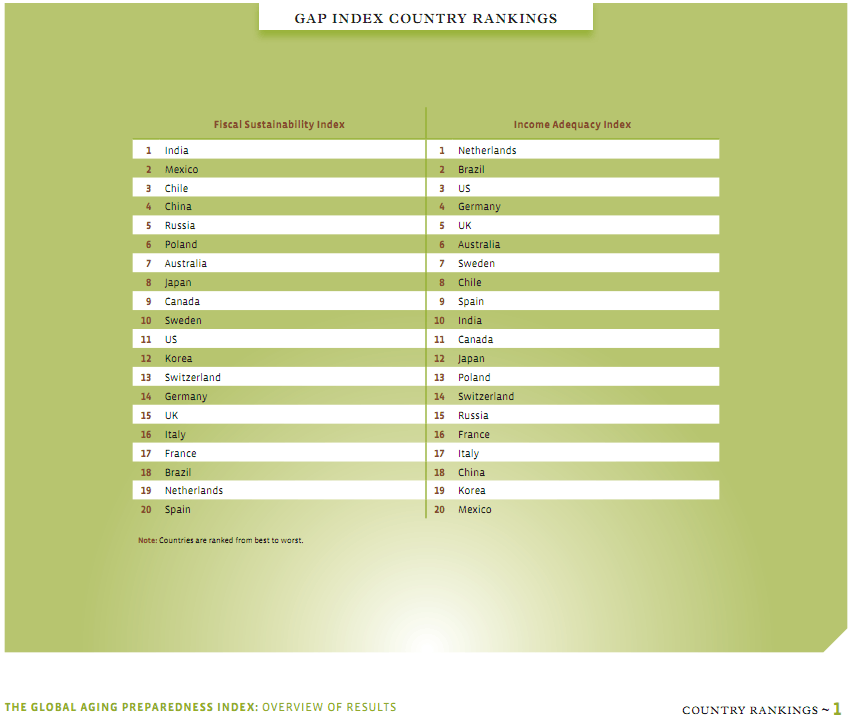The Center for Strategic and International Studies (CSIS) is a Washington DC based public policy organization.
Among the many programs sponsored by CSIS is the Global Aging Initiative—a program focused on “exploring the long-term economic, social and geopolitical implications of demographic trends."
The CSIS Global Aging Initiative is a rich source of demographic content. One of the more interesting pieces of content is what is referred to as the Global Aging Preparedness Index.
This index provides a measure of the relative level of preparedness to meet the challenges of global aging. The index includes both developed and developing countries, and the core measures include income adequacy (for the elderly) and the fiscal sustainability of the programs that support income for the elderly.
Understandably, there is a very clear correlation between a country’s income adequacy and fiscal sustainability:
- High levels of income adequacy tend to be associated with low levels of fiscal sustainability.
- The flipside of this is that countries that spend less supporting elderly income programs (and therefore have lower measures of income adequacy) are not “breaking the bank” to the same extent and tend to have higher measures of fiscal sustainability.
There are some exceptions to this rule. Australia and Chile—and to a certain extent the United States—are countries that score relatively high on both scores.

Overall a very interesting source of information, and the demographic section of the most recent Global Forecast report from CSIS is worth reading as well.
Source: Center for Strategic and International Studies
- Log in to post comments

